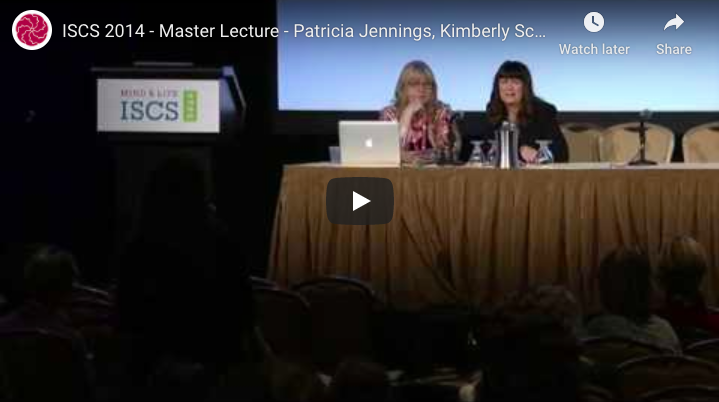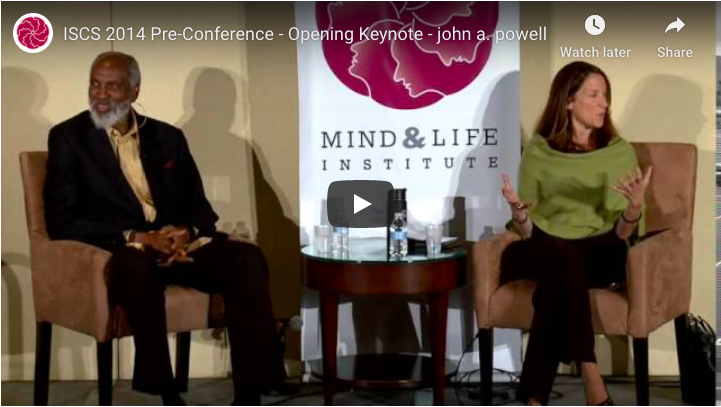Contemplative Science Goes to School: Improving the Context for Teaching and Learning in the Elementary School Years Through Contemplative Approaches
Topic Archives:
Pre-Conference Workshop – Getting from Here to There: Perspectives on System Change in Education
The education of the world’s children is an essential enterprise for any society. This session will examine and deepen our understanding of the vision and work of the mindfulness and social justice movements as they work to reshape education. Together, we will explore places of convergence and difference in our respective views of how educational …
Pre-Conference Workshop – Re-imagining the Vision of Education: Preparing Contemplative and Transformative Teachers and Administrators
The fostering of academic, social and emotional student development and the cultivation of outer- and inner-life skills for all students requires a newly designed vision of education. This session will examine the re-envisioning of education through engaging participants in reflection and lively discussion about critical questions regarding realizing and embodying education by connecting the contemplative …
Pre-Conference Workshop – Mind the Gap: Understanding the Distance Between Contemplative and Transformative Education
What is the distance between the contemplative and transformative movements in education? What are the tensions between them? How do we understand this gap? What can each movement teach us that will guide our vision for a K12 education that serves and supports all children in reaching the highest level of academic learning, and understanding …
Pre-Conference Workshop – Teaching for Radical Transformation
We aim to co-create learning communities in which to explore approaches to infusing transformative education with contemplative practice, with the aim of fostering radical inclusivity and social justice. We believe that practices that support us in turning toward our own positionality, our suffering and the suffering of others (especially based on factors such as race, …
Continue reading “Pre-Conference Workshop – Teaching for Radical Transformation”
Pre-Conference Workshop – Environmental Education
We are at a moment in time when the thriving of all beings on our Planet Mother is in question. What happens when we become aware and engaged as members of living systems? How does that awareness bring deeper meaning to learning within and outside of formal education systems that cultivates a more sustainable life? …
Continue reading “Pre-Conference Workshop – Environmental Education”
Pre-Conference Workshop – To Be or Not to Be…That is the Answer: Empowering Underserved Parents to Be Present for Their Children at Home, School, and as a Community Change Agent
The true heart of parenting extends from doing right for one’s own child to looking out for the best interests of all children. It involves understanding what that means and recognizing that the world is not always receptive. This can often be confusing and frustrating for parents. This discussion will emphasize our collective experiences in …
Pre-Conference Workshop – From Grassroots Community Building to Generating a Movement
From Grassroots Community Building to Generating a Movement: An Investigation of What it Means to Embody Our Vision for Change As educators, administrators, activists, and movement builders, we are more powerful when we bring our whole selves to our work, see our connectedness to others, and embody the change we seek to create in the …
Pre-Conference Workshop – The Awakened Educator: On Contemplative Practice, Applied Research, and Social Transformation in Education
How can we re-envision and reform educational institutions based on our personal and collective aspirations, intentions, and motivations as awakened educators? We will collectively explore issues at the intersection of contemplative practice in education (e.g., mindfulness and compassion), applied research on those practices in school settings, and educational transformation efforts aimed at equity, social justice, …
ISCS 2014 Pre-Conference – Opening Keynote – john a. powell
A Tale of Two Movements: What Transformative and Contemplative Education Can Learn from Each Other



